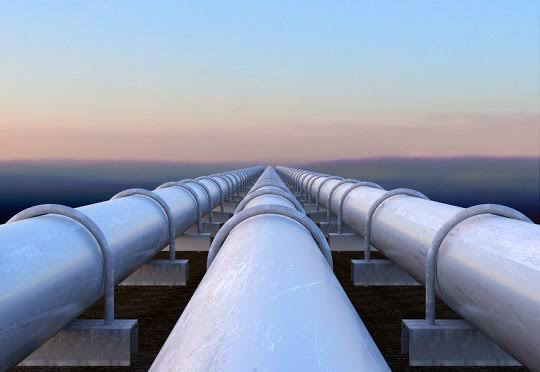KEY POINTS
- Nigeria and Morocco have completed feasibility and engineering studies for the $25B Nigeria-Morocco Gas Pipeline.
- A joint special-purpose company will manage the project, with a final investment decision due by end of 2025.
- The 6,000km pipeline aims to transport gas through 13 West African countries to Europe, boosting energy access and integration.
In a landmark development for African energy integration, the governments of Nigeria and Morocco have finalized feasibility and preliminary engineering studies for the $25 billion Nigeria-Morocco Gas Pipeline, marking significant progress toward one of the continent’s most ambitious infrastructure projects.
The announcement was made by Morocco’s Minister of Energy Transition and Sustainable Development, Leila Benali, during an address to the Moroccan House of Councilors. “We have completed the feasibility studies and front-end engineering design, and participating countries have now agreed on the optimal pipeline route,” she stated.
In addition to these milestones, Minister Benali disclosed that both countries have endorsed a host country agreement and signed an intergovernmental accord—key instruments that will govern the project’s next phases. These agreements are expected to fast-track the legal and regulatory frameworks required to begin construction.
Joint Special-Purpose Company to Drive Project Execution as Final Investment Decision Nears
Preparations are now underway for the creation of a joint special-purpose vehicle between Nigeria and Morocco. This entity will manage the execution of the pipeline project, ensuring seamless coordination between all stakeholders. A final investment decision is expected before the end of 2025.
Spanning over 6,000 kilometers, the proposed pipeline is designed to transport between 15 and 30 billion cubic meters of natural gas annually from Nigeria to Morocco, passing through 11 other West African countries—Benin, Togo, Ghana, Côte d’Ivoire, Liberia, Sierra Leone, Guinea, Guinea-Bissau, The Gambia, Senegal, and Mauritania—before reaching Europe via the Maghreb-Europe Gas Pipeline.
This infrastructure is expected to bolster energy access, industrial development, and regional cooperation across the ECOWAS bloc. It also aligns with Africa’s broader push to harness its natural resources for inclusive development and greater energy security.
“This pipeline is not just a symbol of regional unity, but also a lifeline that will improve access to energy for millions and potentially boost economic growth in West Africa,” said an official at Nigeria’s Ministry of Petroleum Resources who asked not to be named because they were not authorized to speak publicly.
Moreover, Europe has expressed growing interest in alternative energy sources following the supply shocks caused by the Russia-Ukraine war. The Nigeria-Morocco project, once completed, could become a strategic energy corridor between Africa and Europe, increasing the continent’s geopolitical significance in global gas markets.
The pipeline will also strengthen Nigeria’s role as a major gas exporter and further Morocco’s ambitions to become a regional energy hub. It follows the broader context of the 2021 Nigeria-Morocco agreement initiated under the vision of Nigeria’s then-president Muhammadu Buhari and Morocco’s King Mohammed VI.
Though challenges such as financing, security in transit regions, and environmental concerns remain, stakeholders believe the project’s multilateral backing and strategic importance will help overcome hurdles. International financial institutions, including the Islamic Development Bank and ECOWAS Bank for Investment and Development, have already shown interest in supporting the project.



